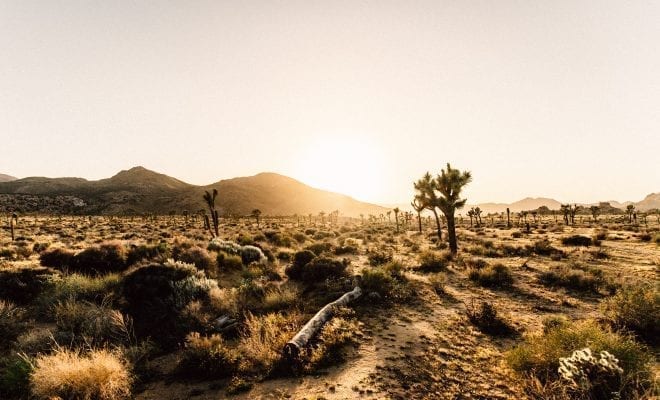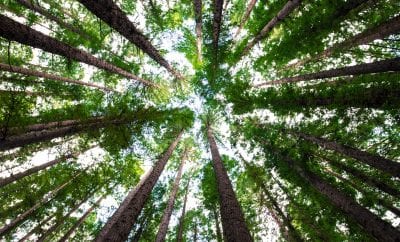
News
Joshua Trees are Being Wiped Out by Climate Change
Joshua trees are iconic to the national park that shares its namesake, but climate change may cause them to disappear by the end of the century. Research published in the journal Ecosphere shows that unless carbon emissions are dramatically lowered, Joshua trees may not be around for the long haul.
With carbon emissions showing no signs of slowing down, research models show that only 0.02% of the trees population will remain in Joshua Tree National Park between 2070 and 2099. Unfortunately, even if we were to drastically reduce our carbon emissions, the damage is already done, as 18.6% of the trees’ original habitat would remain. This, coupled with rising temperatures, worsening drought, and a loss of groundwater all pose serious risks to the survivability of this tree.
Already, drastically changing conditions in the desert climate of the Joshua Tree National Park are impacting the native ecosystem of the trees. As the temperature continues to climb, young trees are becoming less common in the lower ground areas of the desert, with many being found in the cooler climates of the park.
All of these aspects are accelerated by a wildfire activity that is worsening with each passing year. These wildfires are enhanced by smog that travels from the Los Angeles Basin, which strips nitrogen from the ground, a key nutrient for the non-native species of the national park. These non-native species are spreading so quickly, they are choking off the key nutrients of the tree, making it difficult for saplings to grow and fully mature.
The loss of the Joshua tree would mean the loss of an iconic symbol that is so indicative of California wildlife. It would also mean losing a key part of the ecosystem of this beautiful national park that we as humans have taken for granted. Joshua Tree National Park gets more than a million visitors per year, and without that major tourist boon, funds would become scarce to continue the upkeep and preservation of this magnificent reserve.
Until then, researchers continue to study the effects of climate change on the park and Joshua Tree, in hopes of achieving a solution to mitigate the loss of this iconic organism.





2 Comments